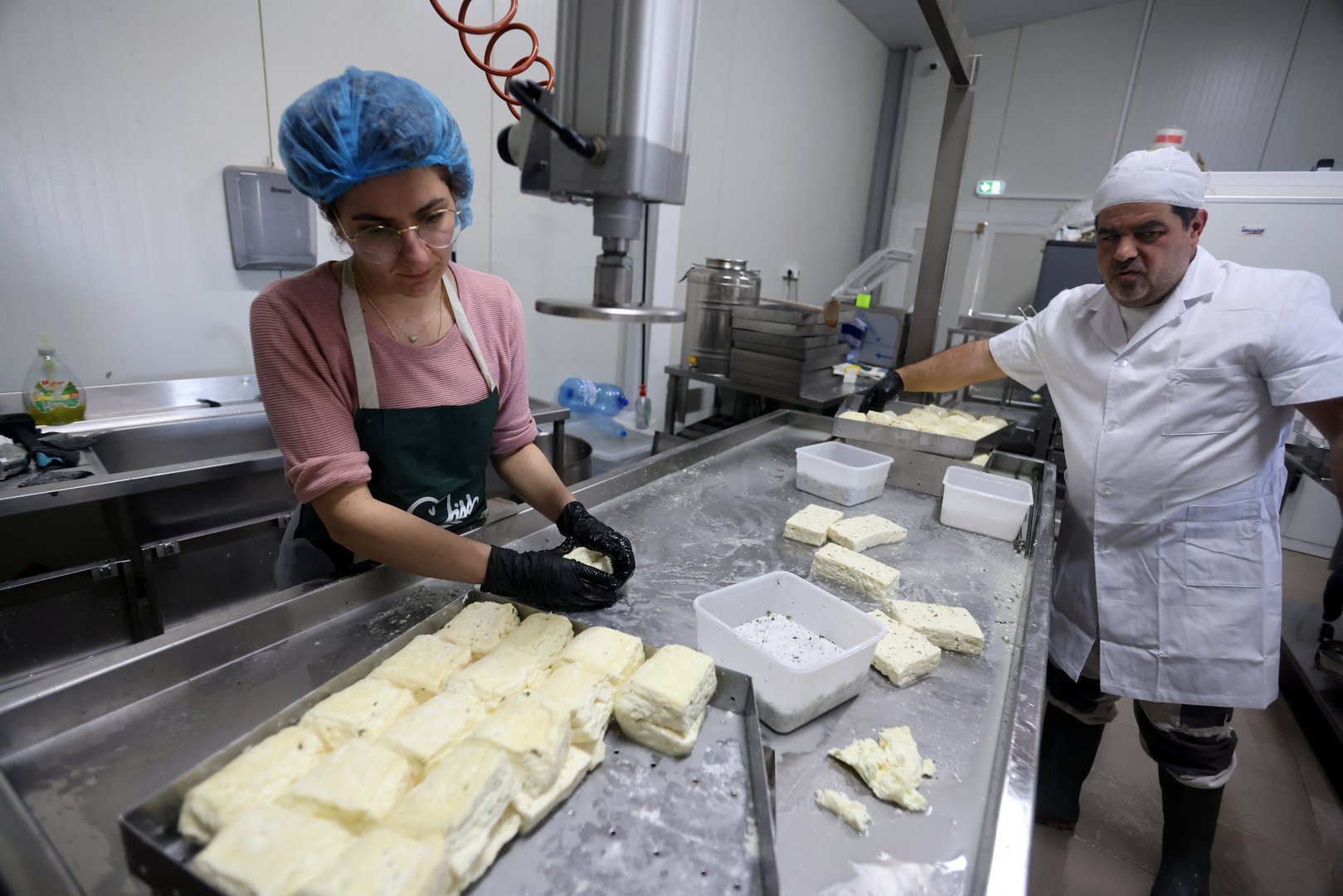Halloumi producers are battling to safeguard its iconic cheese as US tariffs and strict EU regulations put its prized export at risk.
The Cyprus dairy producers’ association warned on Wednesday that while new American import taxes will have a “limited” economic impact, a far greater threat looms: potential EU rules that could slash overseas sales by up to 60 per cent.
The US recently imposed a 10 per cent tariff on halloumi, affecting roughly €10 million of annual exports, just 3 per cent of the cheese’s total overseas sales. But the real danger, producers say, lies in Brussels.
Proposed EU protected designation of origin (PDO) rules could demand that halloumi contain at least 51 per cent goat and sheep milk by 2029, a requirement Cyprus claims is impossible to meet due to limited local supplies.
Halloumi is Cyprus’ top export, with shipments reaching 42,427 tonnes worth €324 million last year. Half of these sales go to the UK, while the rest are spread across 45 countries.
“If we’re worried about losing 3 per cent of exports to US tariffs, we should be far more alarmed by losing up to 60 per cent if the PDO file is enforced as it stands,” the association said.
“Our priority must be protecting halloumi’s future in global markets, through realism, evidence, and urgent action.”
Cyprus has introduced a digital system to track milk supplies, ensuring current PDO quotas (20 per cent goat/sheep milk until July, 15 per cent thereafter) are met. The agriculture ministry and President Nikos Christodoulides have pledged to defend halloumi’s reputation.
A newly formed halloumi protection committee, chaired by Cyprus’ Chamber of Commerce head Stavros Stavrou, will also push for a compromise in EU negotiations. Producers argue that if the 51 per cent goat milk rule proves unworkable, Cyprus must amend the PDO file, or risk devastating an industry that supports over 15,000 jobs.
“The stakes couldn’t be higher,” the association said.
“We must act wisely, halloumi’s place on the world’s plates depends on it.”






Click here to change your cookie preferences